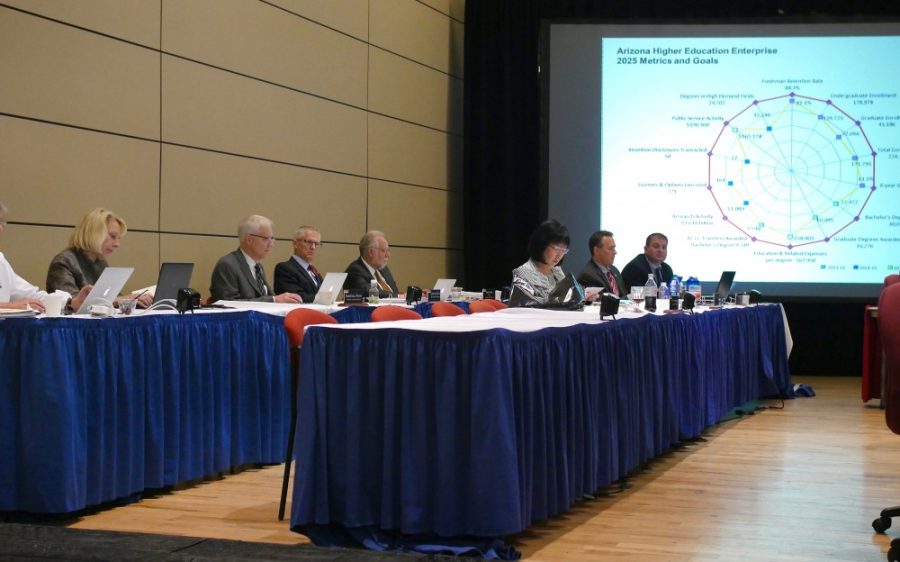The Arizona Board of Regents is holding firm in its decision to provide in-state tuition rates to Deferred Action for Childhood Arrival students, or Dreamers, despite the Attorney General’s office threatening legal action.
Following the board’s 7-1 decision June 29 to continue offering in-state tuition to DACA students until the Arizona Supreme Court makes a final decision on its legality in the State v. MCCCD, the Attorney General’s office warned they may take legal action against the board.
“ABOR may be at risk of liability for improper public expenditures as a result of its present tuition policies,” wrote Michael Bailey, chief of staff to the Arizona Attorney General. “ABOR members could face personal liability for failure to collect tuition in compliance with state law.”
Pursuing legal action this soon is atypical for the Attorney General’s office due to its “general practice of not initiating new legal action based on a favorable court of appeals decision until a mandate has been issued.”
After meeting and discussing the issue, Eileen Klein, president of the Arizona Board of Regents, wrote back to the Attorney General’s office on Aug. 10 that the board will wait until the Arizona Supreme Court makes a final ruling to revoke in-state tuition rights to DACA students.
RELATED: Arizona court rules DACA students ineligible for in-state tuition
“I can speak firsthand to the benefits and acceptance of this practice to wait until the final disposition of a case to avoid confusion in policymaking and implementation,” Klein wrote in the letter. “All of these considerations are magnified when the issue we are addressing here is of such great importance — not only to DACA students, but also to the Board of Regents and to the people of Arizona.”
The board began offering DACA students in-state tuition May 7, 2015, two days after the Maricopa County Community College District won the right to do so in Superior Court.
The attorney general appealed the decision July 1, 2015, and the Court of Appeals overturned it June 20, 2017. The case is now set to be reviewed by the Arizona Supreme Court.
There are roughly 57,000 DACA students in Arizona according to a 2013 DACA Data Profile from the Migration Policy Institute, a nonpartisan think tank. The ruling will determine the status of DACA students currently receiving in-state tuition through public universities and community colleges.
RELATED: DREAMers look for sanctuary at UA
If the Supreme Court rules against MCCCD, the board still offers a nonresident tuition rate for high school graduates where they pay 150 percent of the in-state tuition.
This does not cover all DACA students, according to Klein, and revoking in-state tuition could threaten the scholarship status of the 71 Arizona State University TheDream.US winners.
MCCCD faces a deadline on Aug. 21 to submit a review of the appeal. The district’s board has already voted to pursue the case further and will submit the case on the deadline.
The legal process could take nine to 12 months to resolve according to Matt Hasson, director of communication for MCCCD. Until then both public and community colleges will still offer DACA students in-state tuition.
“At the end of the day we’re going to follow the law,” Hasson said. “Currently with our appeal, we are by law allowed to continue offering them in-state tuition, so we’re doing that.”
Follow the Daily Wildcat on Twitter.








